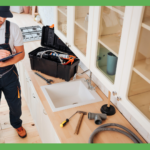You are represented at all times by one of our California Eviction Attorneys | 1-800-686-8686 | intake@fastevict.com | Se habla español
Tips to Keep Good Tenants Happy
Updated 11/06/24
One of the best ways to maximize rental income and minimize vacancy costs is by keeping reliable, respectful tenants for the long term. Landlords who focus on ways to keep good tenants happy often see a reduction in turnover, fewer maintenance issues, and stronger relationships with their renters. In this article, we’ll explore effective tips to help landlords create a positive experience for their tenants, increasing the likelihood they’ll stick around.

Table of Contents
- Why Keeping Good Tenants Matters
- Communication and Responsiveness
- Proactive Maintenance and Property Improvements
- Fair Policies and Lease Terms
- Building a Sense of Community
- Frequently Asked Questions (FAQs)
Why Keeping Good Tenants Matters
High tenant turnover can be costly for landlords, both financially and in terms of time spent finding and vetting new tenants. When landlords make the effort to keep good tenants happy, it leads to long-term benefits, including steady rental income, lower vacancy rates, and a more stable rental environment.
Happy tenants are also more likely to take good care of the property, reducing wear and tear and the need for frequent repairs. By fostering a positive living experience, landlords can build trust and encourage renters to treat the home as if it were their own, leading to better upkeep and fewer issues over time.
Communication and Responsiveness
One of the simplest yet most effective ways to keep good tenants happy is through clear and consistent communication. Landlords who stay in touch with tenants and respond promptly to inquiries demonstrate a level of respect that tenants appreciate.
Whether it’s a maintenance request, a question about lease terms, or a suggestion for improvement, landlords who are responsive show they value their tenants’ comfort and satisfaction. Establishing preferred methods of communication (email, phone, or even a tenant portal) can make it easier for tenants to reach out when needed, creating a smoother experience for both parties.
Additionally, checking in with tenants periodically—not just when issues arise—can go a long way in building a positive landlord-tenant relationship. Small gestures, like sending a friendly note around the holidays or checking on how they’re settling in after a few months, can make tenants feel valued and respected.
Proactive Maintenance and Property Improvements
Nothing frustrates tenants faster than ongoing maintenance issues or delayed repairs. Being proactive about property maintenance is one of the best ways to keep good tenants happy. Addressing problems before they become serious demonstrates a commitment to the quality of the living environment, showing tenants that their comfort matters.
Regularly inspecting the property, updating essential appliances, and maintaining common areas are all important steps. Seasonal maintenance, such as HVAC servicing, gutter cleaning, and lawn care, also ensures the property stays in top shape and prevents small issues from escalating. This proactive approach not only keeps tenants satisfied but also protects the long-term value of the property.
Making small upgrades, like new paint or updated fixtures, can also make a big difference. If the budget allows, consider adding features tenants value, such as energy-efficient appliances, improved lighting, or even enhanced security. Tenants appreciate landlords who invest in the property, as it shows a dedication to providing a high-quality living space.
Fair Policies and Lease Terms
Fairness and transparency are key when setting lease terms and policies. Landlords who take the time to draft reasonable, clear lease agreements help prevent misunderstandings and build trust with their tenants. For example, explaining pet policies, detailing security deposit handling, and outlining rules for shared spaces all help to create a smooth, stress-free experience for tenants.
It’s also helpful to be flexible with lease renewals and consider offering longer-term leases to tenants who have proven to be responsible. This not only provides them with stability but also encourages them to stay longer. If rent increases are necessary, landlords should consider the local market and communicate any changes with advance notice, explaining the reasons behind the increase. Tenants are more likely to accept adjustments if they feel they’re being treated fairly.
Building a Sense of Community
Good tenants are more likely to stay if they feel a sense of community and belonging in their home. While this is easier to foster in multi-unit buildings, single-family landlords can also create a friendly atmosphere that makes tenants feel more at home.
Hosting small community events or creating a space for tenants to connect with one another can go a long way in building relationships and promoting a positive atmosphere. For landlords managing single-family homes, encouraging open communication and supporting tenants’ ideas for improvement can also foster a sense of ownership and pride.
Simply acknowledging and celebrating tenants’ personal milestones—like birthdays or lease anniversaries—with a small gift or note can make a meaningful impact. These gestures don’t need to be costly, but they show tenants that they’re more than just a rent check. When tenants feel like valued members of a community, they’re more likely to stay and take pride in their home.
Frequently Asked Questions (FAQs)
How often should I check in with tenants to keep them happy?
While there’s no strict rule, checking in every few months is generally a good approach. Small gestures, like a quick email or friendly note, can help maintain positive communication without feeling intrusive.
What if I can’t afford to make major improvements to the property?
Focus on small, meaningful upgrades that show tenants you care. Even minor fixes, like replacing outdated fixtures or improving landscaping, can make a big difference. Prioritizing prompt repairs also helps tenants feel valued without needing to invest heavily in property upgrades.
How can I make fair rent increases without upsetting good tenants?
Research market rates in your area, and if an increase is needed, communicate it clearly and with plenty of notice. Tenants are more understanding when they know the reason behind a rent adjustment. Consider offering a discount for long-term renewals to show appreciation for their loyalty.
Keeping good tenants around is one of the best ways for landlords to ensure steady rental income and a well-maintained property. By focusing on clear communication, proactive maintenance, fair policies, and community-building, landlords can create an environment that tenants enjoy and are more likely to stay in for years to come. These small efforts add up, making the rental experience rewarding for both tenants and landlords.





